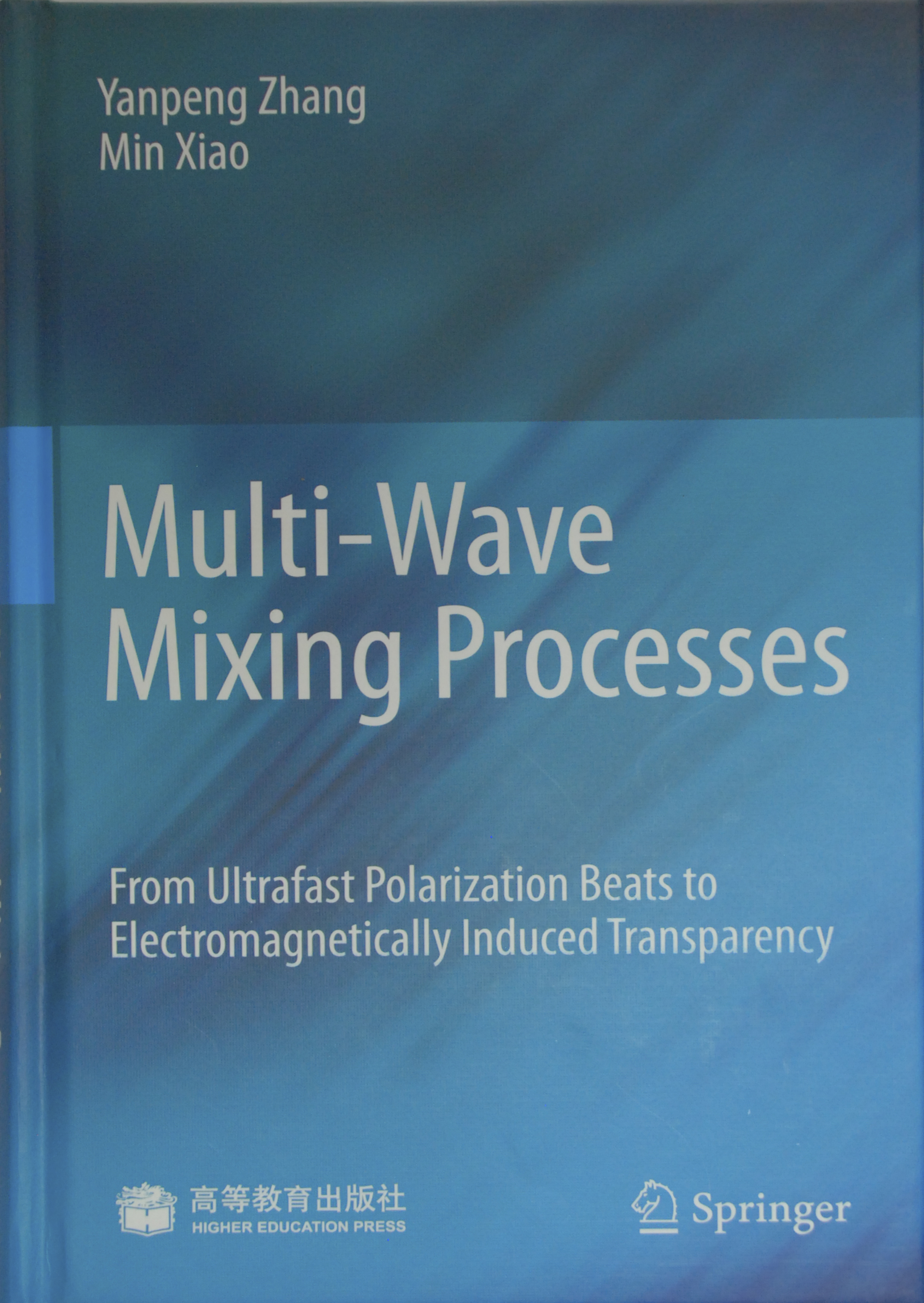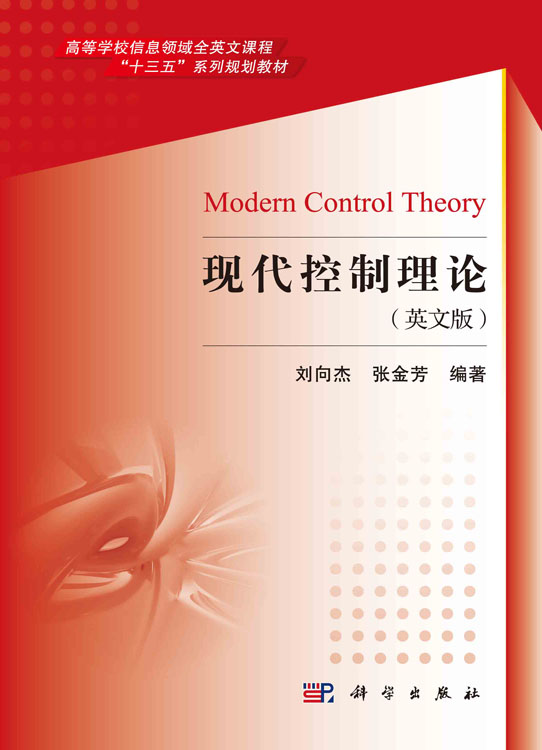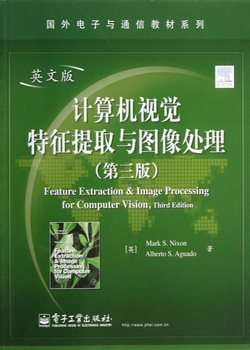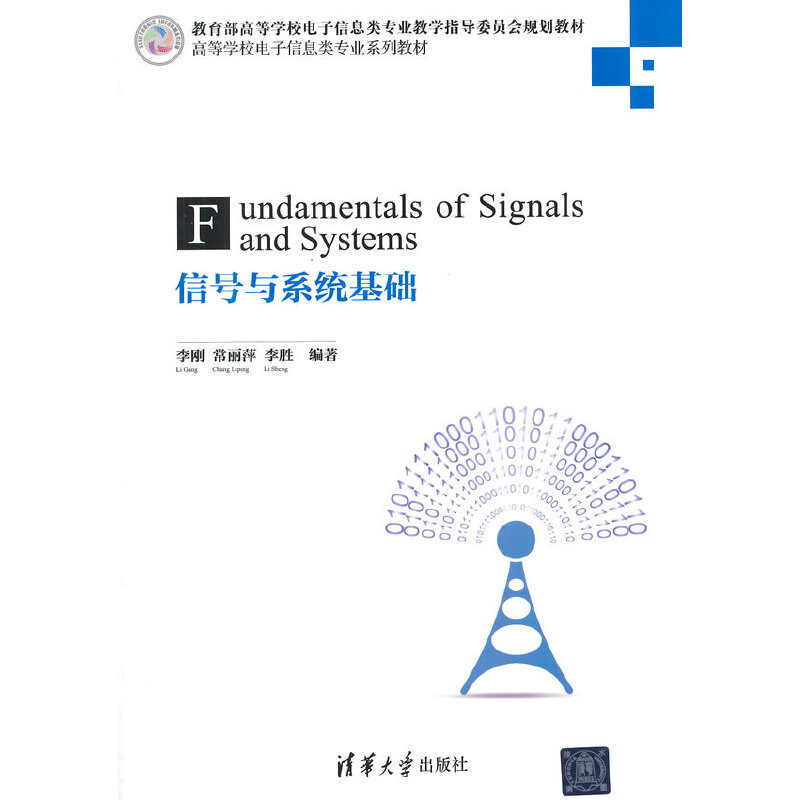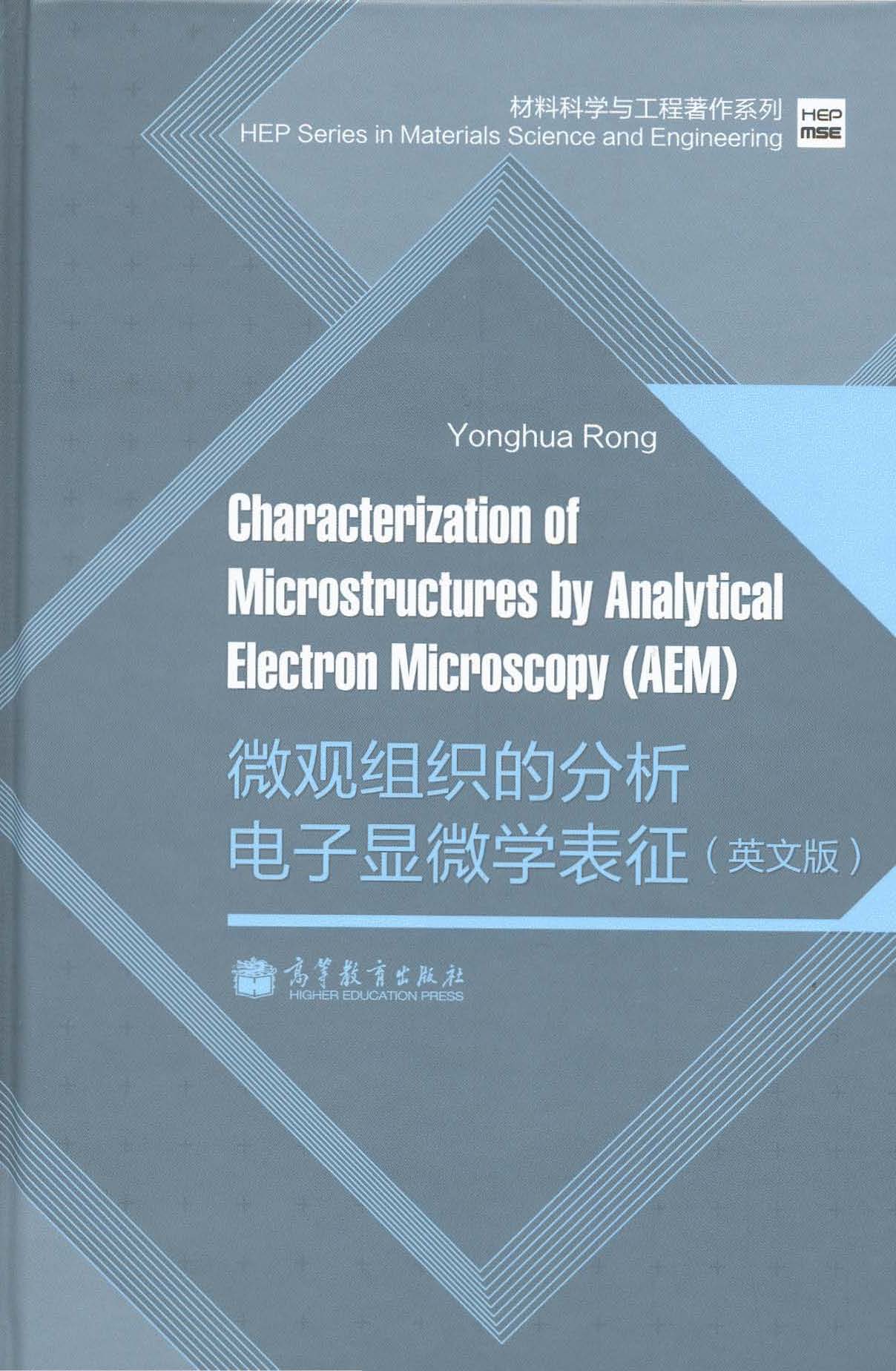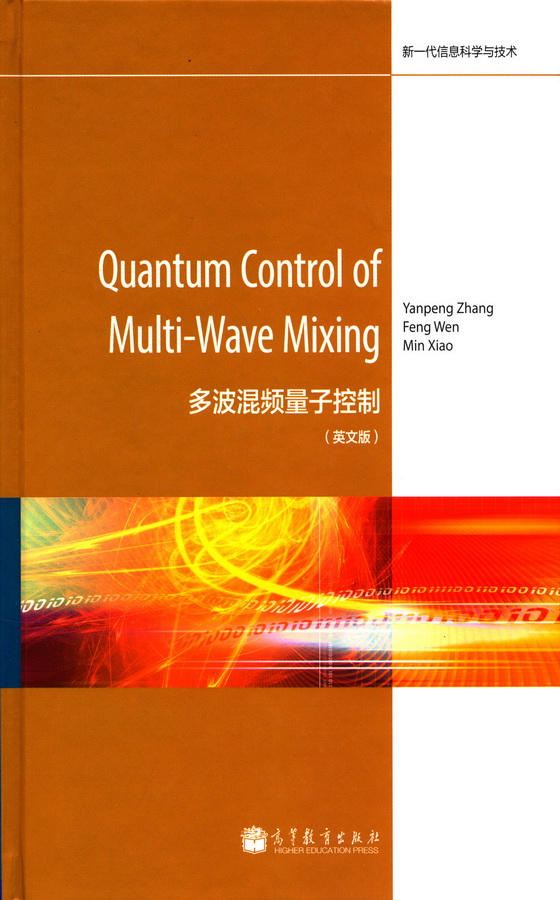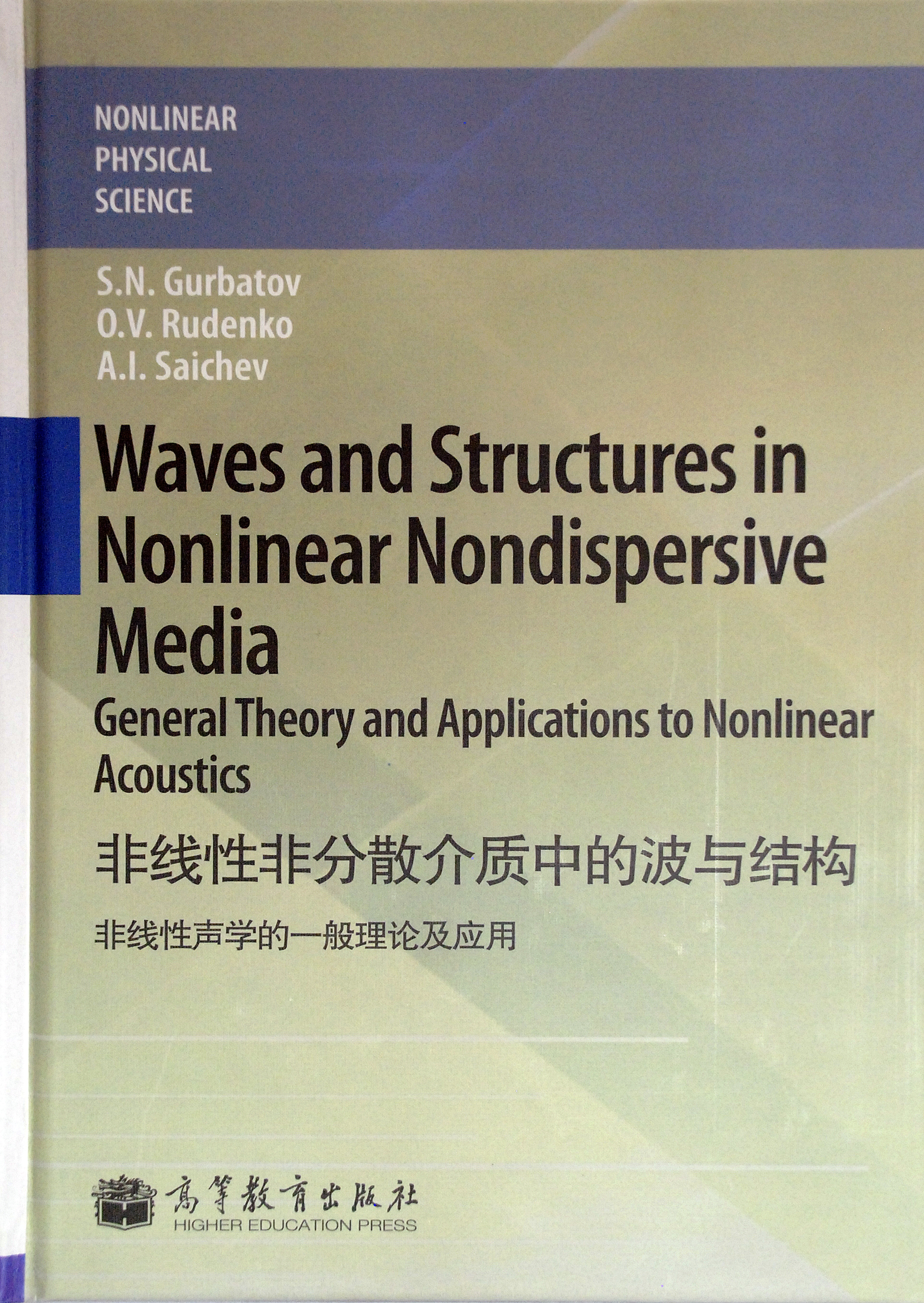多波混频——从超快极化拍到电磁诱导透明(英文版) / 中国图书对外推广计划
作者: Yanpeng Zhang,Min Xiao
出版时间:2009-01
出版社:高等教育出版社
- 高等教育出版社
- 9787040257953
- 1版
- 227394
- 48266950-4
- 精装
- 特殊
- 2009-01
- 500
- 332
- 工学
- 电子信息类
- TN929.1;O437.1
- 电子信息科学类
- 研究生及以上
Multi-Wave Mixing Processes From Ultrafast Polarization Beats to ElectromagneticaUy Induced Transparency discusses the interactions of efficient multi-wave mixing (MWM) processes enhanced by atomic coherence in multilevel atomic systems. It covers topics in five major areas: attosecond and femtosecond polarization beats of four-wave mixing (FWM) processes; heterodyne detection of FWM, six-wave mixing (SWM)and eight-wave mixing (EWM) processes; Raman and Rayleigh enhanced polarization beats; coexistence and interactions of MWM processes via electromagnetically induced transparency (EIT); multi-dressing MWM processes.
The book is intended for researchers, advanced undergraduate and graduate students in Nonlinear Optics.
《多波混频——从超快极化拍到电磁诱导透明》讨论了多能级原子系统中由原子相干增强的有效多波混频过程之间的相互作用。主要覆盖了以下五个领域:四波混频过程中的阿秒级和飞秒级极化拍;四波、六波和八波混频过程中的外差探测技术;拉曼和瑞利增强极化拍;电磁诱导透明多波混频过程的共存和相互作用;多缀饰多波混频过程。
本书可供非线性光学领域的研究者、高年级本科生及研究生使用。
1 Introduction
1.1 Nonlinear Susceptibility
1.2 Four-wave Mixing
1.3 Generalized Resonant MWM in Multi-level Atomic Systems
1.4 Enhanced Nonlinearity via Electromagnetically Induced Transparency
References
2 Femtosecond Polarization Beats
2.1 Effects of Field-correlation on Polarization Beats
2.1.1 PBFS in a Doppler-broadened System
2.1.2 Photon-echo
2.1.3 Experiment and Result
2.2 Correlation Effects of Chaotic and Phase-diffusion Fields
2.2.1 Photon-echo
2.2.2 Experiment and Result
2.3 Higher-order Correlations of Markovian Stochastic Fields on Polarization Beats
2.3.1 HOCPB in a Doppler-broadened System
2.3.2 Photon-echo
2.3.3 Experiment and Result
References
3 Attosecond Polarization Beats
3.1 Polarization Beats in Markovian Stochastic Fields
3.2 Perturbation Theory
3.3 Second-order Stochastic Correlation of SFPB
3.4 Fourth-order Stochastic Correlation of SFPB
3.5 Discussion and Conclusion
References
4 Heterodyne/Homodyne Detection of MWM
4.1 Modified Two-photon Absorption and Dispersion of Ultrafast Third-order Polarization Beats
4.1.1 Liouville Pathways
4.1.2 Col0r-locking Stochastic Correlations
4.1.3 Purely Homogeneously-broadened Medium
4.1.4 Extremely Doppler-broadened Limit
4.1.5 Discussion and Conclusion
4.2 Color-locking Phase Control of Fifth-order Nonlinear Response
4.3 Seventh-order Nonlinear Response
References
5 Raman- and Rayleigh-enhanced Polarization Beats
5.1 Raman-enhanced Polarization Beats
5.1.1 Chaotic Field
5.1.2 Raman Echo
5.1.3 Phase-diffusion Field
5.1.4 Gaussian-amplitude Field
5.1.5 Experiment and Result
5.2 Rayleigh-enhanced Attosecond Sum-frequency Polarization Beats
5.2.1 Stochastic Correlation Effects of RFWM
5.2.2 Homodyne Detection of Sum-frequency RASPB
5.2.3 Heterodyne Detection of the Sum-frequency RASPB
5.2.4 Discussion and Conclusion
References
6 Coexistence of MWM Processes via EIT Windows
6.1 Opening FWM and SWM Channels
6.2 Enhancement of SWM by Atomic Coherence
6.3 Observation of Interference between FWM and SWM
6.4 Controlling FWM and SWM Processes
References
7 Interactions of MWM Processes
7.1 Competition between Two FWM Channels
7.2 Efficient Energy Transfer between FWM and SWM Processes
7.3 Spatial and Temporal Interferences between Coexisting FWM and SWM Signals
References
8 Multi-dressed MWM Processes
8.1 Matched Ultraslow Pulse Propagations in Highly-Efficient FWM
8.1.1 Time-dependent, Adiabatic Treatment for Matched Probe and NDFWM Signal Pulses
8.1.2 Steady-state Analysis
8.1.3 Discussion and Outlook
8.2 Generalized Dressed and Doubly-dressed MWM Processes
8.2.1 Generalized Dressed-(2n 2)WM and Doubly- dressed-(2n 4)WM Processes
8.2.2 Interplays Among Coexisting FWM, SWM, and EWM Processes
8.3 Interacting MWM Processes in a Five-level System with Doubly-dressing Fields
8.3.1 Three Doubly-Dressing Schemes
8.3.2 Aulter-Townes Splitting, Suppression, and Enhancement
8.3.3 Competition between Two Coexisting Dressed MWM
8.3.4 Conclusion and Outlook
References
Index

